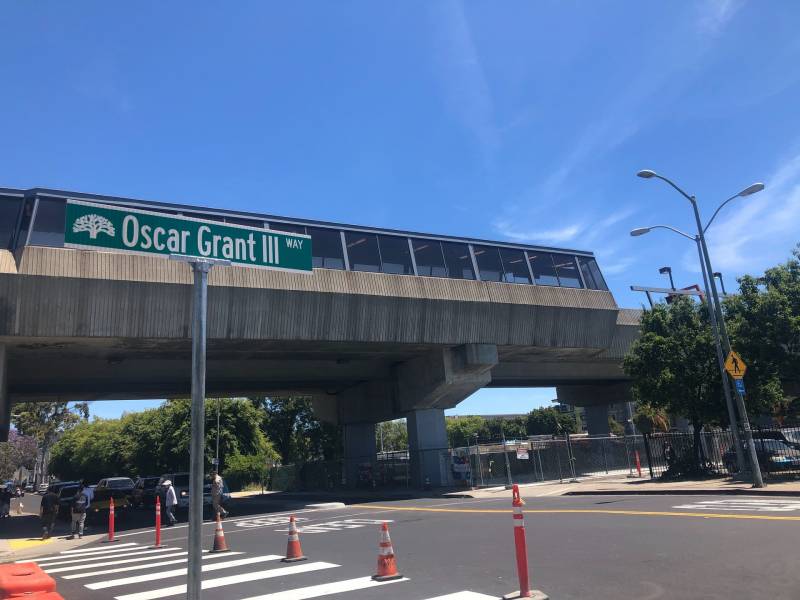The analysis said Pirone’s accounts called into question “his justification for deciding to arrest Grant for a 148 PC (resisting arrest) charge, a decision that led directly to the failed effort to arrest Grant and thence to the shooting.”
BART spokesperson Trost said Friday that the only files related to the Oscar Grant case yet to be released are audio files, which have yet to be prepared. However, analysis of the documents already provided indicates the existence of additional written records, including transcripts and disciplinary documents.
To date, no audio files from the Grant investigation or multimedia from any of seven additional serious use-of-force and misconduct cases have been disclosed.
In fact, attorneys for the agency informed KQED on Jan. 22 that BART was only then seeking a contractor to redact audio and video files.
“Since SB 1421 was enacted we have been seeking an acceptable and affordable way to accomplish extensive, legally required, redaction of very large amounts of audio and visual files,” Trost said, noting that work can be labor intensive. “However, we are committed to finding a solution and hope to report progress on this front soon.”
BART has produced almost no information on two other fatal police shootings in recent years, and provided dubious grounds for withholding those records.
The agency said recently that it had only a few police reports on the 2014 shooting death of BART Police Sgt. Thomas Smith, who was killed when fellow Detective Michael Maes mistook him for an armed suspect during a search of a home in Dublin. BART’s own investigation into the shooting remained paused — for six years — due to “pending litigation,” according to the agency’s Jan. 22 response.
But BART had previously indicated that it completed an internal investigation in early 2015. Former BART Police Chief Kenton Rainey said publicly in mid-2014 that BART would “move forward with concluding its internal investigation of the tragedy.” And the agency settled a lawsuit brought by Smith’s family in 2018.
BART did not respond to requests for clarification on these points, but simply repeated that “no findings or conclusions are available for that investigation.”
The agency has similarly argued that it has no internal investigative records related to Officer Joseph Mateu’s fatal shooting of Sahleem Tindle in 2018 because “the investigation remains tolled due to ongoing litigation.”
“This is the most excruciating pain and heartache that any family can go through,” Johnson said. “The idea of just knowing what happened becomes so critical in your understanding of how to begin to heal from such devastation.”


